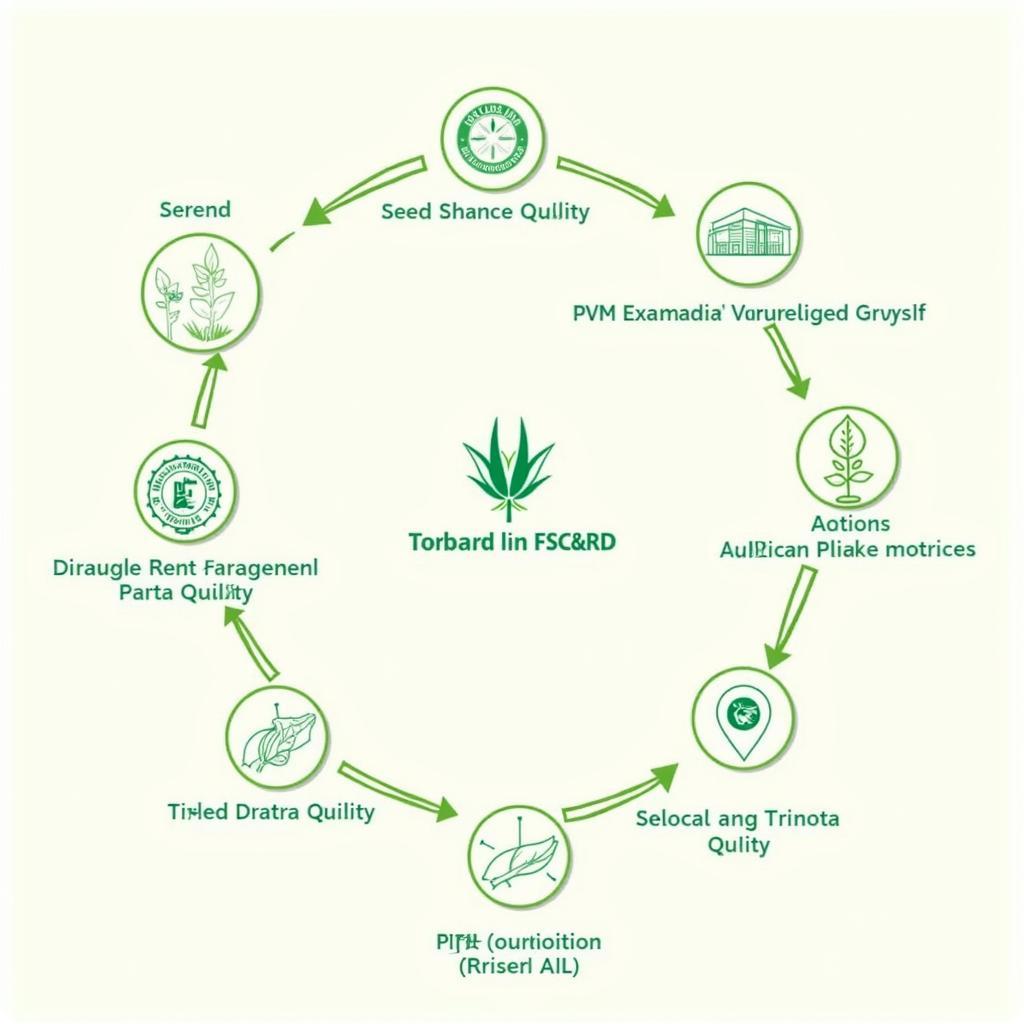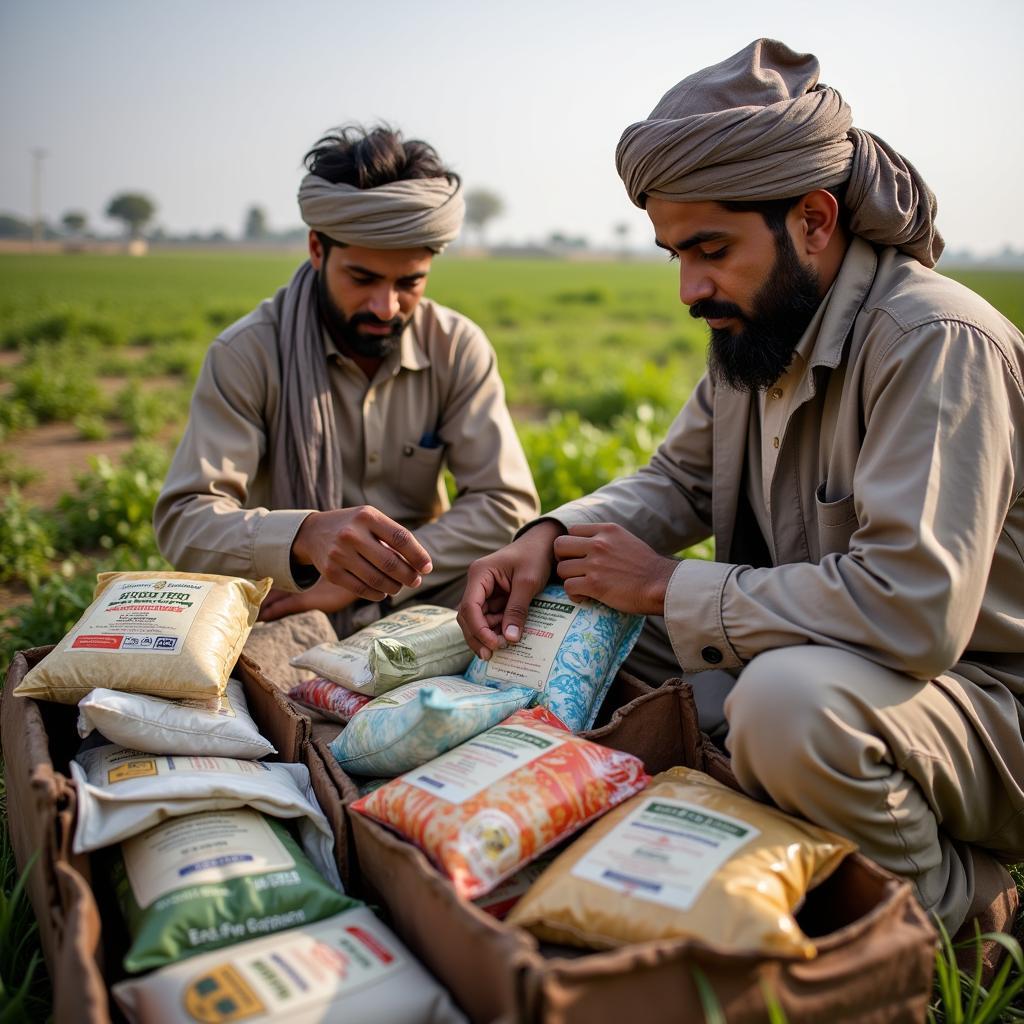The Federal Seed Certification and Registration Department (FSC&RD) in Pakistan plays a critical role in safeguarding the agricultural landscape and ensuring food security for the nation. This department operates under the Ministry of National Food Security & Research, dedicated to promoting the use of high-quality seed for enhanced agricultural productivity.
The Importance of Seed Certification in Pakistan
 Seed Certification Process in Pakistan
Seed Certification Process in Pakistan
Agriculture, a cornerstone of the Pakistani economy, relies heavily on the availability of superior seed varieties. The use of certified seed leads to higher crop yields, improved disease resistance, and ultimately, increased income for farmers. Recognizing this, the FSC&RD works diligently to implement and enforce seed laws, set quality standards, and provide farmers with access to reliable, certified seed.
Key Functions of the Federal Seed Certification and Registration Department
The FSC&RD carries out a range of vital functions, all geared towards elevating the standard of seed used in Pakistani agriculture:
-
Seed Law Enforcement: The department ensures strict adherence to the Seed Act of 1976 and the Seed Rules of 1978, providing a legal framework for seed production, processing, and marketing. This includes cracking down on the sale of spurious and uncertified seed, safeguarding farmers from potential losses.
-
Seed Testing and Certification: The FSC&RD conducts rigorous laboratory and field inspections to assess the physical purity, germination capacity, and genetic integrity of seed varieties. Only seed lots meeting the stringent criteria are granted certification, providing farmers with assurance of quality.
-
Registration of Seed Varieties: New seed varieties, often developed through research and breeding programs, must be registered with the FSC&RD. This process involves evaluating the distinctness, uniformity, and stability of the variety, ensuring its suitability for Pakistani growing conditions.
 Pakistani Farmers Selecting Certified Seed
Pakistani Farmers Selecting Certified Seed
-
Seed Quality Control: The department maintains a vigilant watch over the entire seed supply chain, from production fields to retailers, to prevent the sale of substandard seed. This includes regular inspections, sample collection, and enforcement actions against violators.
-
Promoting Public Awareness: The FSC&RD actively educates farmers and other stakeholders about the benefits of using certified seed. Through workshops, training sessions, and awareness campaigns, the department emphasizes the link between quality seed and improved agricultural outcomes.
Benefits of Using Certified Seed: A Farmer’s Perspective
“I used to rely on saved seed from previous harvests,” shares Muhammad Anwar, a cotton farmer from Punjab. “But the yields were inconsistent, and I often faced pest and disease problems. Since I switched to certified seed, my yields have increased significantly, and my crops are healthier. The investment in certified seed is worth every rupee.”
Anwar’s experience resonates with many Pakistani farmers who are increasingly realizing the positive impact of certified seed on their livelihoods.
Challenges and the Way Forward
While the FSC&RD plays a crucial role, challenges remain in ensuring widespread access to and adoption of certified seed:
-
Counterfeit Seed Market: Despite efforts to curb it, the illegal sale of counterfeit seed continues to pose a threat, undermining the hard work of both farmers and the FSC&RD.
-
Limited Awareness Among Farmers: While awareness is growing, a significant number of farmers, especially in remote areas, remain unaware of the benefits of certified seed or lack access to reliable sources.
-
Resource Constraints: The FSC&RD requires adequate resources, including modern testing equipment and skilled personnel, to effectively carry out its mandate across the vast agricultural landscape of Pakistan.
Conclusion
The Federal Seed Certification And Registration Department Pakistan serves as the gatekeeper of seed quality, playing an indispensable role in ensuring agricultural productivity and food security. By strengthening its regulatory framework, enhancing farmer outreach, and collaborating with research institutions and private seed companies, Pakistan can further leverage the power of certified seed to drive agricultural growth and improve the livelihoods of farmers nationwide.
Frequently Asked Questions (FAQs)
-
How can I verify if a seed variety is registered in Pakistan? You can check the FSC&RD website or contact their office directly to inquire about the registration status of a specific seed variety.
-
What should I do if I suspect someone is selling counterfeit seed? Report the incident to the nearest FSC&RD office or local agricultural authorities, providing them with as much information as possible.
-
Where can I buy certified seed in Pakistan? Certified seed is available through authorized dealers and retailers across Pakistan. You can contact the FSC&RD or agricultural extension offices for a list of certified seed suppliers in your area.
For assistance or more information, please contact the Federal Seed Certification and Registration Department Pakistan:
Phone Number: +923337849799
Email: [email protected]
Address: Dera Ghazi Khan Rd, Rakhni, Barkhan, Balochistan, Pakistan.
Our dedicated customer service team is available 24/7 to assist you.